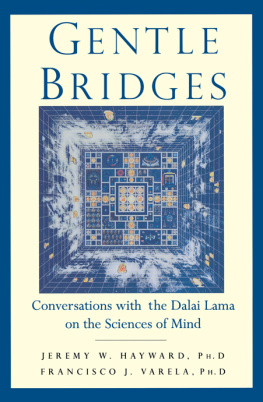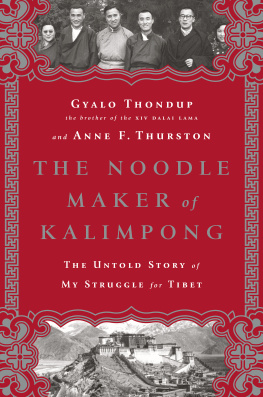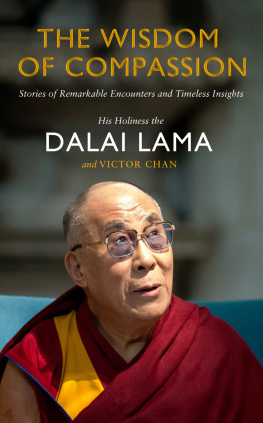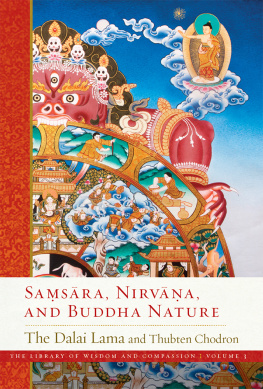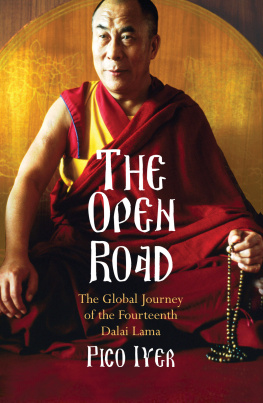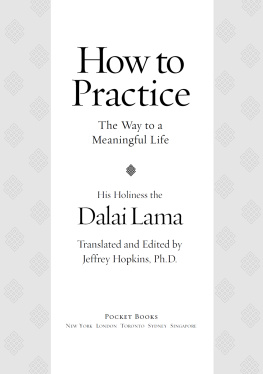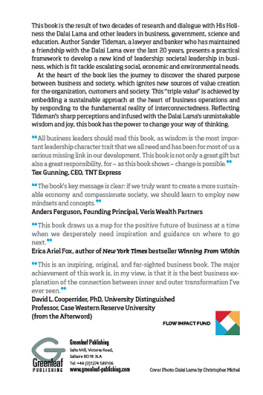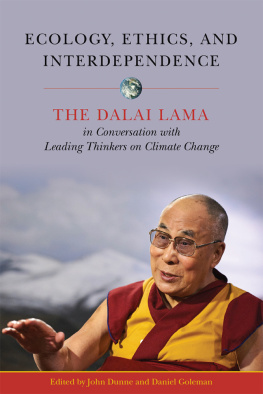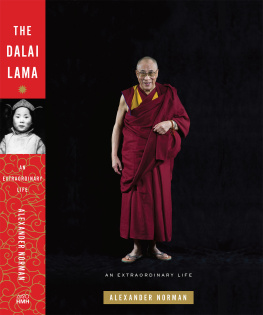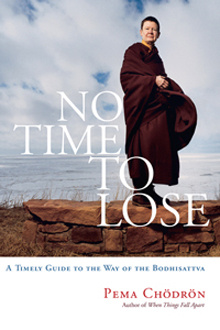ABOUT THE BOOK
What is the essence of the mind? Could computers ever have consciousness? Can compassion be learned? When does consciousness enter the human embryo? These are just some of the many questions that were discussed during a historic meeting that took place between several prominent Western scientists and the Dalai Lama. Gentle Bridges is a chronicle of this extraordinary exchange of ideas.
JEREMY W. HAYWARD is an international education director of Shambhala Training. He is the author of Letters to Vanessa: On Love, Science, and Awareness in an Enchanted World and Shifting Worlds, Changing Minds: Where the Sciences and Buddhism Meet. He teaches warriorship retreats around the world.
FRANCISCO J. VARELA, Ph.D., was Fondation de France Professor of Cognitive Science and Epistemology at the cole Polytechnique and the Institute of Neuroscience of Paris. He is also the author of Principles of Biological Autonomy.
Sign up to learn more about our books and receive special offers from Shambhala Publications.

Or visit us online to sign up at shambhala.com/eshambhala.
Gentle Bridges
Conversations with the Dalai Lama on the Sciences of Mind
Edited by
JEREMY W. HAYWARD
and
FRANCISCO J. VARELA

SHAMBHALA Boston & London 2014
Shambhala Publications, Inc.
Horticultural Hall
300 Massachusetts Avenue
Boston, Massachusetts 02115
www.shambhala.com
2013 by Jeremy W. Hayward and Francisco J. Varela
Cover art: Meditation de la galaxie by Josaku Maeda. Reproduced courtesy of Michel Random.
All rights reserved. No part of this book may be reproduced in any form or by any means, electronic or mechanical, including photocopying, recording, or by any information storage and retrieval system, without permission in writing from the publisher.
The Library of Congress catalogues the previous edition of this book as follows:
Bstan-dzin-rgya-mtsho, Dalai Lama XIV, 1935
Gentle bridges: conversations with the Dalai Lama on the sciences of mind/edited by Jeremy Hayward and Francisco J. Varela.
p. cm.
eISBN 978-0-8348-2878-0
ISBN 0-87773-613-8 (alk. paper)
ISBN 1-57062-893-9 (pbk.)
1. BuddhismPsychology. 2. Buddhism and science. 3. BuddhismDoctrines. 4. Cognitive science. I. Hayward, Jeremy W. II. Varela, Francisco J., 1945 . III. Title.
BQ4570.P76B77 1992
294.342dc20
91-52525
CIP
BVG 01
In October of 1987 a small group of scientists traveled to northern India to meet with His Holiness the Dalai Lama, the spiritual and temporal leader of the Tibetan people. All the scientists were professionally involved in some aspect of research or thought concerning modern scientific approaches to mind and life. In addition, most of them also had an interest in Buddhism. For six days, morning and afternoon, the scientists met with His Holiness in the living room of his residence. With them were two Tibetan scholars, two translators, and a few observers. This was an unprecedentedly thorough, rich, and friendly exchange between eminent representatives of two great world traditions: science in the West and Buddhism in the East. It later turned out to be only the first of a series of conferences between His Holiness and Western scientists on the theme of Mind and Life. This book, then, is an edited record of that first series of meetings.
His Holiness the Dalai Lama was accompanied at the meetings by Geshe Yeshi Thabkhe, professor of Buddhist studies, Central Institute of Higher Tibetan Studies, Sarnath, India; and Geshe Palden Drakpa, Tibet House, New Delhi, India. The Tibetan title geshe is roughly equivalent to the Western doctorate. The participating scientists were Newcomb Greenleaf, Ph.D., professor of computer science, Columbia University; Jeremy W. Hayward, Ph.D., professor, Naropa Institute, Boulder, Colorado; Robert B. Livingston, M.D., professor of neurosciences, University of California, San Diego; Luigi Luisi, Ph.D., professor of chemistry, Federal Polytechnical Institute, Zurich; Eleanor Rosch, Ph.D., professor of cognitive psychology, University of California, Berkeley; Francisco J. Varela, Ph.D., professor of cognitive science and epistemology, Ecole Polytechnique and Institute of Neuroscience, Paris.
At the time of the Chinese takeover of Tibet in 1959, His Holiness led thousands of Tibetans to safety in India and now serves as head of the Tibetan government in exile in Dharmsala. The Dalai Lama has visited Europe and North America on numerous occasions and is known the world over as a great spiritual teacher and a tireless worker for peace. In 1989 he received the Nobel Peace Prize. All his life His Holiness has shown an interest in science; he has said that if he had not been a monk, he would have liked to be an engineer. Going beyond this personal interest, he has taken a leading role in encouraging Buddhists to enter into a true dialogue with scientists.
How did this meeting come about? Dr. Varela had encountered His Holiness a number of times in public meetings in Europe and had been frustrated by the feeling that a fruitful dialogue was not possible because of shortness of time and too much exposure to the public. When visiting Paris in 1986, the Dalai Lama again invited Dr. Varela to meet for discussion. Their conversation went on for over an hour, during which Dr. Varela was intensely questioned about neuroscience. At the end of the hour, His Holiness attendants insisted that it was time to go to a reception at the French House of Representatives (Assemble Nationale). As he left, he said to Dr. Varela, We must talk more, but I cannot give much time to it when I am visiting the West. I will make a week of my time available if you can come to Dharmsala. And bring anyone else you want. At about the same time, a student of His Holiness, businessman Adam Engle, was aware of the Dalai Lamas lively interest in science and was looking into the possibility of organizing a gathering with scientists. Engle and Varela met, and thus the first of the Mind and Life conferences was born. Financial support came from a grant-in-aid from Mr. Branco Weiss of Zurich, Switzerland, and donations from Adam Engle Associates. The conference was coordinated by Engle and Varela as well as Michael Sautman, M.A., of Berkeley, California.
The Dalai Lamas residence is several miles from Dharmsala, up a steep mountainside, near a small town known as Mcleod Ganj, which is inhabited by Tibetan refugees. The visiting group stayed in a guest house about half a mile down the mountain from the residence. Each morning we ate breakfast while sitting on our veranda overlooking the valley below and then were driven up to the residence in jeeps. At the entrance to the residence we always had to go through a polite security check. Then we would go on to the living room. His Holiness would enter promptly at nine, and we would immediately plunge into intense discussion. After the morning session, we would ride or walk back down the mountain for a quick lunch, then return for the afternoon session. The mornings were crisp and cool, but the bright autumn sun warmed us through the day. From His Holiness residence we could see the brilliant snowcapped front range of the Himalayas. In the evenings, we sat on our own veranda and watched the sun go down and the busy town of Dharmsala light up, far below.
The atmosphere of the meetings was intentionally very informal. The meetings were recorded in both audio and video, and there was a general intention to make the proceedings public in some fashion, yet we had all agreed that our primary purpose was genuine discussion with the Dalai Lama on matters of mutual interest. Sometimes gatherings of scientists and religious leaders are like a stage show in which set speeches are made to impress the public and little real dialogue happens. We all wanted to avoid this. The key ingredients were plenty of time, a group of scientists who also cared for respectful transcultural exchange, and shelter from the immediate presence of the public. Another key element was the help of two excellent translators, one Tibetan and one Westerner. These were Thubten Jinpa of Ganden Shartse College, Mundgod, India; and B. Alan Wallace, spiritual director of the Dharma Friendship Foundation, Seattle, Washington. Often during the discussions, there would be long pauses as the translators conferred, searching for English and Tibetan equivalents. This was a process that was essential if numerous misunderstandings were to be avoided. Nonetheless, translation remained mostly an auxiliary function, since the Dalai Lama usually spoke to us directly in English and only occasionally required our English to be translated for him.
Next page
